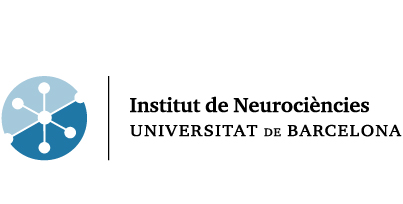
MARÍA ÁNGELES JURADO LUQUE
Position: Associate Professor
Research team
Jonatan Emanuel Ottino Gonzalez
Early stage researcher
jottino (at) ub.edu
Xavier Prats Soteras
Early stage researcher
xprats (at) ub.edu
Cristina Sánchez Castañeda
Postdoctoral researcher
cristina.sanchez (at) ub.edu
Contact details
Dr. María Ángeles Jurado Luque
Department of Psicologia clínica i Psicobiologia
Faculty of Psychology, Passeig de la Vall d’Hebron 171
08035 Barcelona (Spain)
+34 933125055
majurado (at) ub.edu
Research Interests
In the obesogenic environment of modern societies, every individual responds differently to the excessive availability of calories. Differences in central nervous system function between normal-weight and obese people can be investigated to understand how central nervous system processes are specifically associated with overeating. An improved understanding of neural vulnerability factors that predict future weight gain should provide valuable information for the design of more effective treatments.
We have observed higher impulsivity, higher reward sensitivity and difficulties in inhibitory control in healthy participants with obesity. In addition, we have found interactions between obesity and dopaminergic polymorphisms in executive function performance, in compulsive eating behavior and in personality traits. In our previous work we have also found alterations in brain function in young participants with obesity. We have observed that participants with obesity show increased functional connectivity of the putamen within the salience network in resting-state, and that this increased connectivity is correlated with neuropsychological tasks that measure speed of processing. On the other hand, we have found that young adults with obesity showed cortical thinning in the left superior frontal cortex and right medial orbitofrontal areas, along with less volume in the ventral diencephalon.
The main goal of our research is to characterize functional and structural brain networks in obesity and overweight, with special emphasis on biomarkers (including here dopaminergic genes, FTO, 5-HTT, peptides and inflammatory markers) that might act as mediators between phenotypic body weight and behavioral expression (impulsivity, reward sensitivity, inhibitory-control and executive function).
Furthermore, based on the results derived from our previous studies, we are evaluating the impact of executive function training and physical activity and sleep monitoring in food-choice, emotional state and quality of life of obese children. Those changes are expected to induce cerebral plasticity that will be measured by MRI-connectivity.
Technologies / methods
- Neuropyschological assessment
- Structural neuroimaging analysis
- Functional neuroimaging analysis
Highlighted publications
· Marqués-Iturria, L.H. Scholtensc, M. Garolerad, R. Pueyo, I. García-García, P. González-Tartiere, B. Segura, C. Junqué, M.J. Sender-Palacios, M. Vernet-Vernet, C. Sánchez-Garre, M.A. de Reus, M.A. Jurado, M.P. van den Heuvel (2015). Affected connectivity organization of the reward system structure in obesity. NeuroImage.
· García-García, A. Horstmann, M. A. Jurado, M. Garolera, S. J. Chaudhry, D. S. Margulies, A. Villringer, J. Neumann. (2014). Reward processing in obesity, substance addiction and non-substance addiction. Obesity Reviews.
· García-García, M.Á. Jurado, M. Garolera, B. Segura, R. Sala-Llonch, I. Marqués-Iturria, R. Pueyo, M.J. Sender-Palacios, M. Vernet-Vernet, A. Narberhaus, M. Ariza, C. Junqué. (2013). Alterations of the salience network in obesity: A resting-state fMRI study. Human Brain Mapping.
· García-García, M.A. Jurado, M. Garolera, B. Segura, I. Marqués-Iturria, R. Pueyo, M. Vernet-Vernet, M.J. Sender-Palacios, R. Sala-Llonch, M. Ariza, A. Narberhaus, C. Junqué. (2013). Functional connectivity in obesity during reward processin. Neuroimage.
· Marqués-Iturria, R. Pueyo, M. Garolera, B. Segura, C. Junqué, I. García-García, M.J. Sender-Palacios, M. Vernet-Vernet, A. Narberhaus, M. Ariza, M. Á. Jurado. (2013). Frontal cortical thinning and subcortical volume reductions in early adulthood obesity. Psychiatry Research.



